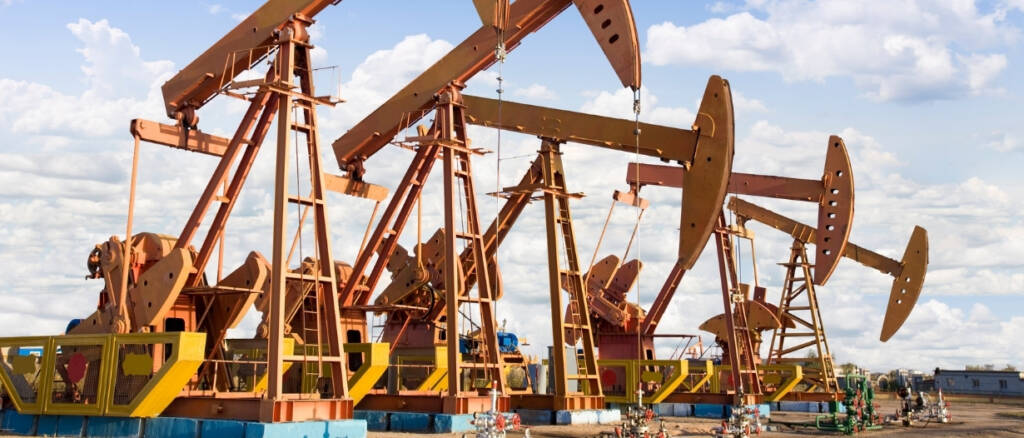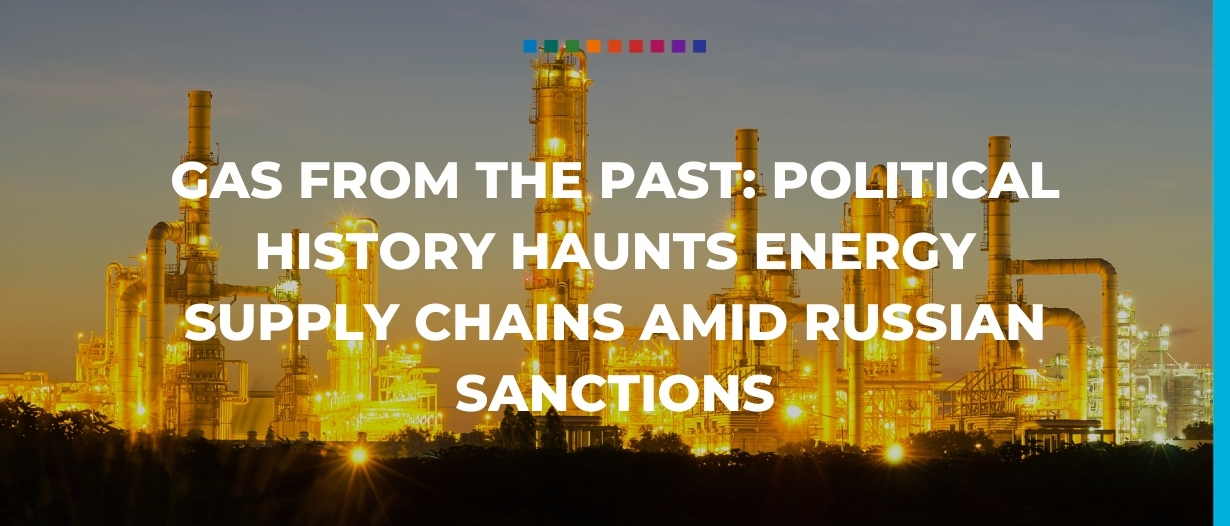On Wednesday, the Russian gas exporter and bank Gazprom suspended gas flows to Poland and Bulgaria as the firm did not receive payment from the countries in roubles.
This follows a decree from Russian President Vladamir Putin in March that buyers of Russian gas would have to pay in roubles.
Logistically, this means that buyers of gas must set up an account with Gazprombank and send USD or euros. The bank will then convert these to roubles so the buyer can purchase the gas.
Since gas supply contracts tend to be longer-term, it has taken a while for this to come to the fore.
This policy was an effort to strengthen the rouble, along with other policies including capital controls and 20% interest rates in Russia.
Despite the decree affecting all ‘hostile’ governments to Russia, the larger importers, such as Germany, still pay in Euros, refusing to pay using the Russian currency.
This threat from Russia to pause supplies still shows that economic sanctions are a major part of this conflict.
This sanction is a rebuttal to western sanctions on Russian banks using SWIFT and western threats to stop importing Russian oil and gas.
The integrated world of international trade has facilitated these economic tools, giving governments the ability to influence political relationships with other nations through supply chain relationships.
To understand these relationships, we must first understand their origins.
The origin of energy relationships
Germany has historically been an energy importing nation, particularly in oil and gas.
In 2021, Germany imported 95% of its gas, one-third of which was Russian, contributing to 15.4% of gross electricity production for 2021.
Significantly, Germany is also Russia’s largest gas customer, consuming 20% of Russian exports.
With a global market, it’s easy to assume that there would be no need to rely on a specific partner, however, without LNG terminals, Germany relies heavily on pipelines.
Alongside climate goals, Germany planned to reduce reliance on domestic production of lignite (soft coal) which is mostly produced in Germany and contributed to 18% of electricity production in 2021, up from the previous years.
Environmentalists prefer gas power stations to coal since they can be turned on and off in a shorter period of time and have lower greenhouse gas emissions.
European reliance on imported Russian gas has a deeper political nature than climate transition and market forces.

German search for alternative oil supplies
In the post-war era, exploration and demand for oil and gas expanded rapidly, with energy-intensive western economies demanding stable energy supply lines.
One of the most contested areas was the Middle East, with oil-producing nations attempting to regain control of their oil reserves from extortive colonial contracts.
For example, in 1947, Anglo-Iranian Oil company (now BP) paid 17.5% of its profits to Iran.
After years of negotiation and coups, they formed a consortium agreement in 1954 with the nationalised National Iranian Oil Company, splitting ownership of Iranian oil equally up until 1979.
The 1956 Suez Crisis was a major turning point for European states in accessing Middle Eastern energy reserves at preferential rates but the United States rejected Britain and France’s military intervention to reverse Egypt’s nationalisation of the Suez canal.
The Suez Canal is an important energy supply route, with 5% of crude oil and 8% of shipped LNG passing through each year.
Understanding their volatile position as an energy importer was enough to signal to the German government that they should search for alternatives.

Germany built strong relations with Russian oil suppliers
In Germany, commodity traders had started building supply relationships with the Soviet Union at around this time.
In 1956, Theodor Weisser, a German commodity trader, secured a one-year supply of diesel from the Soviets which later developed into crude oil imports.
This energy relationship between Germany and Russia continued throughout the cold war.
In 1981, Deutsche Bank led banks in supplying credit to the Soviet Union to help build the Trans-Siberian Pipeline where the gas would be transported from Siberia to Ukraine for distribution around Western Europe.
The United States imposed sanctions on western businesses involved in building the pipeline, however, Germany refused to back down and supported the pipeline.
The United States removed sanctions when Western European nations agreed that they would not import more than 30% of their gas from the Soviet Union.
This energy relationship with Russia allowed Germany to avoid the US military intervention in the Middle East during the first and second gulf wars.
This allowed Germany to escape criticism of Western imperialism and their energy supply lines were mostly undisrupted.
However, in current times this reliance has limited German’s ability to send a political message and restrict Russian income during the Ukrainian conflict.
German dependence on oil and gas solidified
Nord Stream 1 – the gas pipeline connecting Russia and Germany through Ukraine – deepened the relationship between the two countries after its first lines were laid in 2011.
Gerhard Schröder, Chancellor of Germany from 1998 to 2005, solidified his country’s reliance on gas when he announced the nation’s transition away from nuclear energy in 2000.
While Angela Merkel momentarily reversed this decision after assuming the Chancellorship, it was reinstated in 2011 following the aftermath of the Fukushima meltdown in Japan.
Germany currently plans to shut down its final two nuclear power at the end of 2022.
While this level of dependence isn’t uncommon in Europe, it has impacted Germany’s response to the conflict.
Enacting policy changes
Since Russia’s February 24 invasion of Ukraine, the EU has sent €20 billion to Russia for gas.
In April, the EU announced its Stand up for Ukraine initiative – a humanitarian project supporting Ukraine with a comparatively meagre €1 billion.
This imbalance makes politics very difficult for the EU.
To escape this reliance and reduce funding to Russia during the conflict, Europe will need a coordinated policy response.
On March 25th, the US and EU announced a task force on energy security, engaging with governments and energy industry stakeholders to secure the European energy supply.
Changes to government energy policy and energy producers’ business plans, however, take time to implement.
This means that the difficulties we see today will continue in the short term.





























